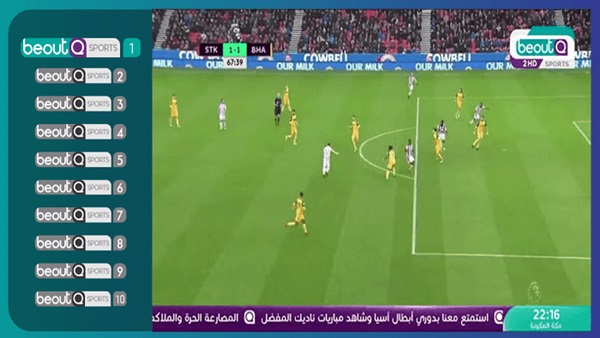
Football leagues ramp up pressure on Saudi Arabia
In an unprecedented collaboration, football leagues FIFA, the AFC, UEFA, the Bundesliga, LaLiga, the Premier League and Lega Serie A have called on the authorities in Saudi Arabia to take action against pirate pay-TV operator BeoutQ. The seven leagues have said that the Kingdom of Saudi Arabia must take “swift and decisive action” against the pirate TV company. The leagues say that they have been unable to get any Saudi Arabia-based legal firm to represent them in their efforts to shut down the operation that is taking signals of Bein and rebroadcasting them to viewers in Saudi Arabia with a different logo.
The joint statement reads:
We, the rights holders of various football competitions, collectively condemn in the strongest possible terms the ongoing theft of our intellectual property by the pirate broadcaster known as ‘beoutQ’ and call on the authorities in Saudi Arabia (KSA) to support us in ending the widespread and flagrant breaches of our intellectual property rights taking place in the country.
Since May 2018, we have collectively been working with an international legal counsel to monitor and compile evidence against beoutQ, whose broadcasts are regularly and on an industrial scale made available on an illegal basis. Following thorough analysis by technical experts of how beoutQ operates from a technical perspective, we are satisfied that beoutQ is operating specifically to target customers in KSA and is utilising the facilities of at least one KSA-based entity.
Over the past 15 months, we spoke to nine law firms in KSA, each of which either simply refused to act on our behalf or initially accepted the instruction, only later to recuse themselves.
As copyright holders we have reached the conclusion, regrettably, that it is now not possible to retain legal counsel in KSA which is willing or able to act on our behalf in filing a copyright complaint against beoutQ. We feel we have now exhausted all reasonable options for pursuing a formal copyright claim in KSA and see no alternative but to pursue beoutQ and a solution to this very serious problem of piracy by other means.
beoutQ’s infringement of our rights inevitably harms every aspect of the industry, from the rights holders to legitimate licensees, consumers and fans, participants (including players, clubs and national teams) and ultimately, the sport itself.
We have welcomed previous statements by the Saudi Ministry of Culture and Information and the Saudi Government against beoutQ. However, given the scale of beoutQ’s piracy in KSA and that the piracy continues unabated, we request that the Ministry and the Saudi Government take swift and decisive action against beoutQ.
We are committed, collectively and individually, to working with all relevant authorities to combat the beoutQ piracy.
The piracy affects other sporting rights holders, including Wimbledon and Formula 1.
